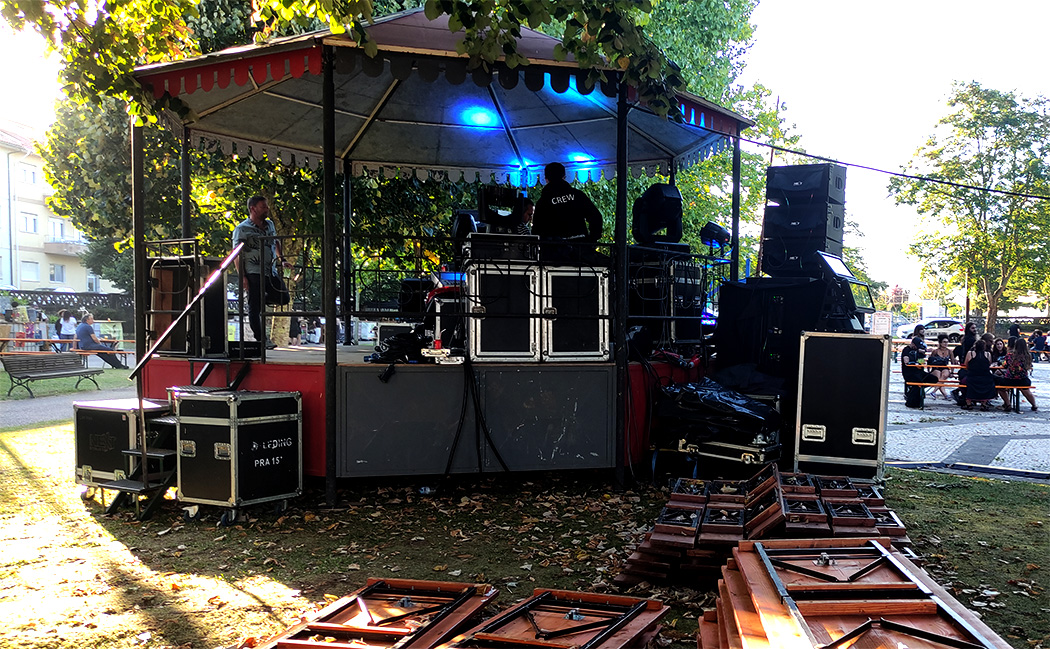ArtBeerFest: Past And Future
Written by Jesús Olano—Photos by Jesús Olano; Caminha (Portugal), 13/09/2021 beerbayOU
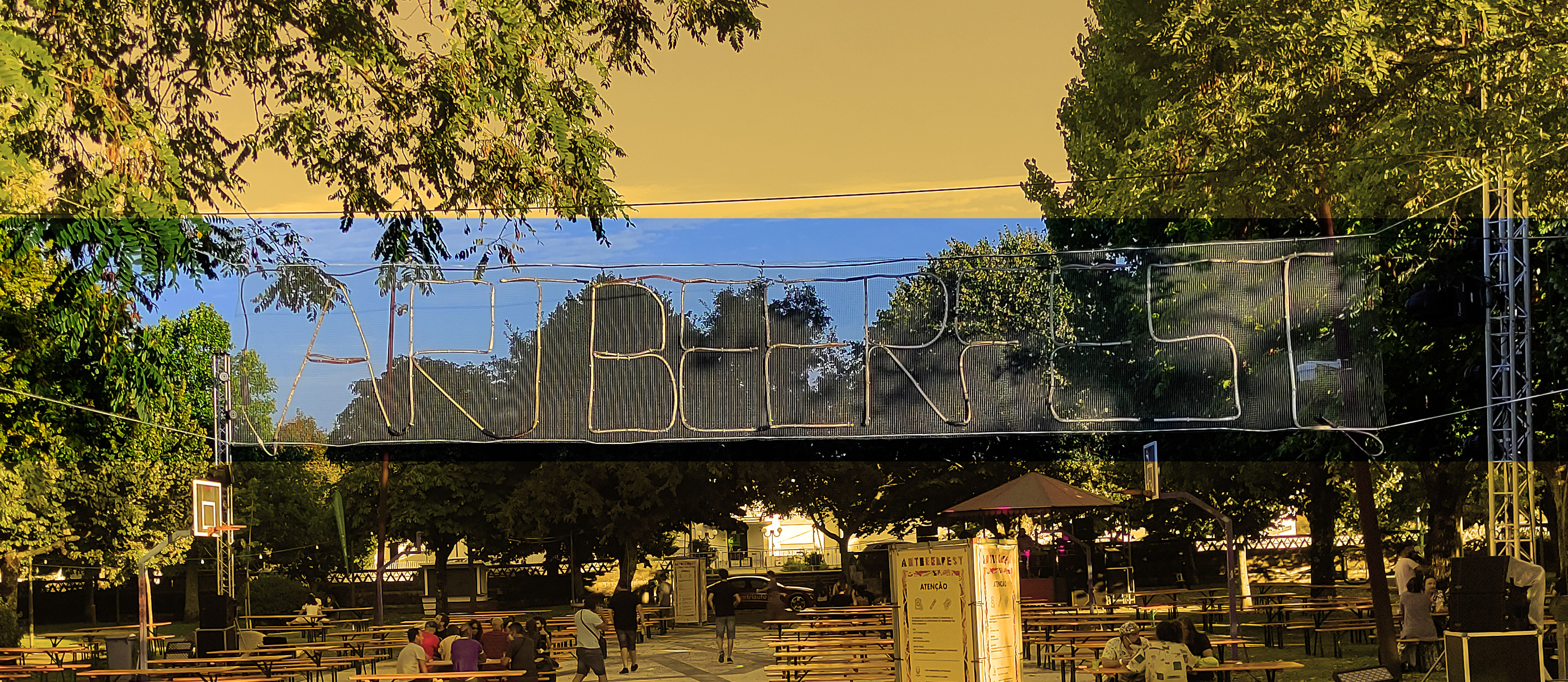
Located at the mouth of the Minho, Caminha is a small Portuguese town of 2,500 inhabitants that every summer since 2013 has become the centre of the craft beer world thanks to its festival—one of the most recognisable in Europe. Last year, the pandemic that stopped the world also meant a pause for Caminha's ArtBeerFest, but Octavio Costa—its organiser and alma mater—didn't want to let another blank year go by.
Despite health restrictions, Octavio managed to bring together 22 of the best Portuguese and international brewers. The format of the festival changed slightly, moving from Caminha's old quarter to the 25 de Abril park, and a limited capacity of 400 people a day. Fortunately, this year's edition was a success and Octavio was able to share with us some of the history and future plans for the festival.
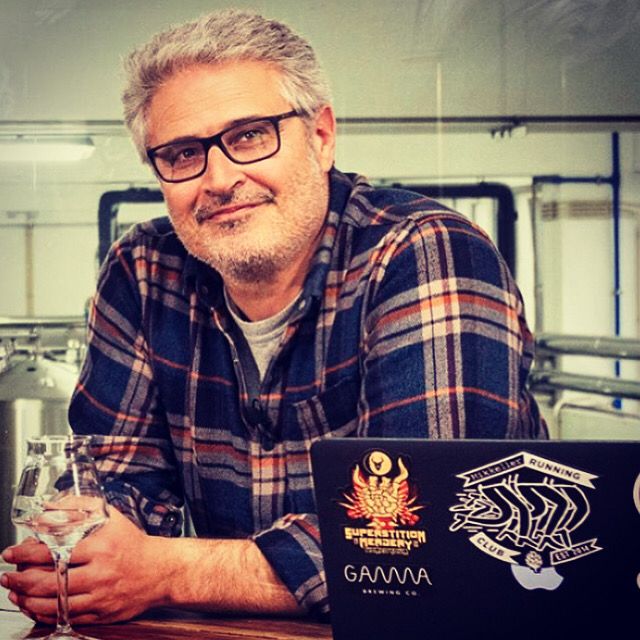
Tell us a bit about the origins, how did ArtBeerFest come about?
We decided to launch a proposal for what was going to be the next big thing.
Octavio: Back then, we used to travel a lot, and we realised that this craft beer scene existed. In Portugal we had a lot of potential, but when coming back from travelling, there was nothing. Our core business was events organization—oenological, gastronomic—and we had organised Expo Shanghai 2010 for the Portuguese government. At a certain point, we decided to launch a different proposal—we were fed up with the same old medieval fairs. We decided to launch a proposal for what was going to be the next big thing, a thing yet to come—which also meant risks. We were lucky that the Caminha town council understood what we were going to do.
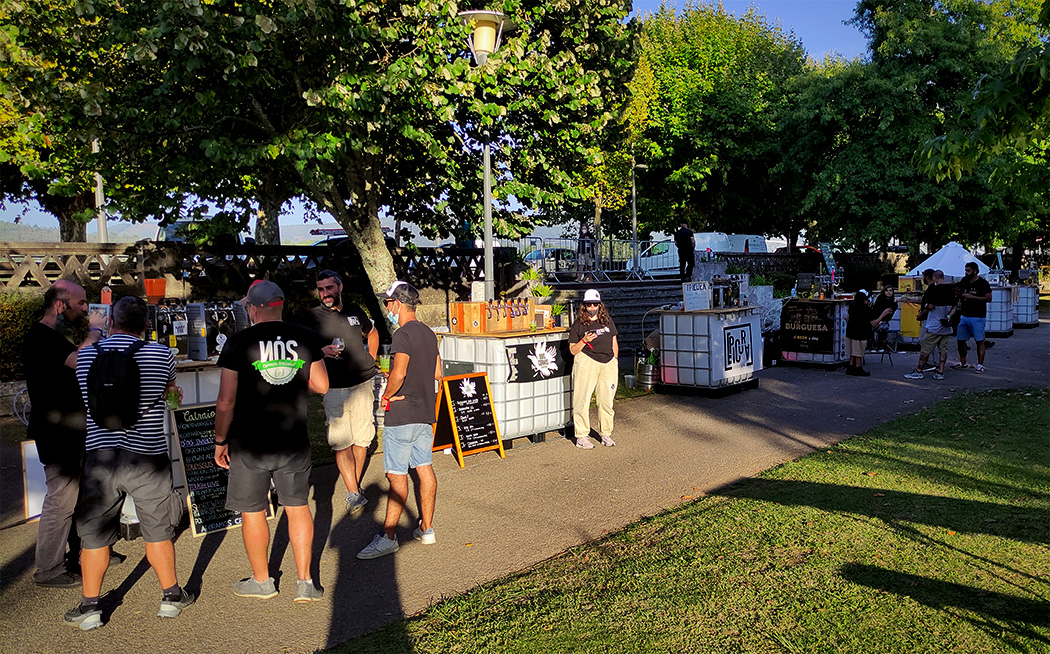
Why Caminha?
Octavio: In the Portuguese Alto Minho district, Caminha is the only area that doesn't make wine. And it's a cosmopolitan area, with tourism, sun and beer. So the Câmara Municipal de Caminha helped us to set up the festival. And to our—and the Chamber's—surprise, that first year 20.000 people attended in 4 days. At that moment, there was still hardly any craft beer in Portugal—so we had 14 international and 4 Portuguese brands.
When we opened the Jornal de Noticias the following Monday, the front page read “Caminha, the Mecca of craft beer”.
When we opened the Jornal de Noticias the following Monday, the front page read “Caminha, the Mecca of craft beer”. When we saw that cover we understood that we had something in our hands, and that this was the way. And since then, Caminha's ArtBeerFest has always been evolving, always progressing.
At the same time, we have been reaping the fruits. We opened PortBeerFest in Porto, AlamedaBeerFest in Faro. All this has been growing from a little joke we wanted to do in Caminha.
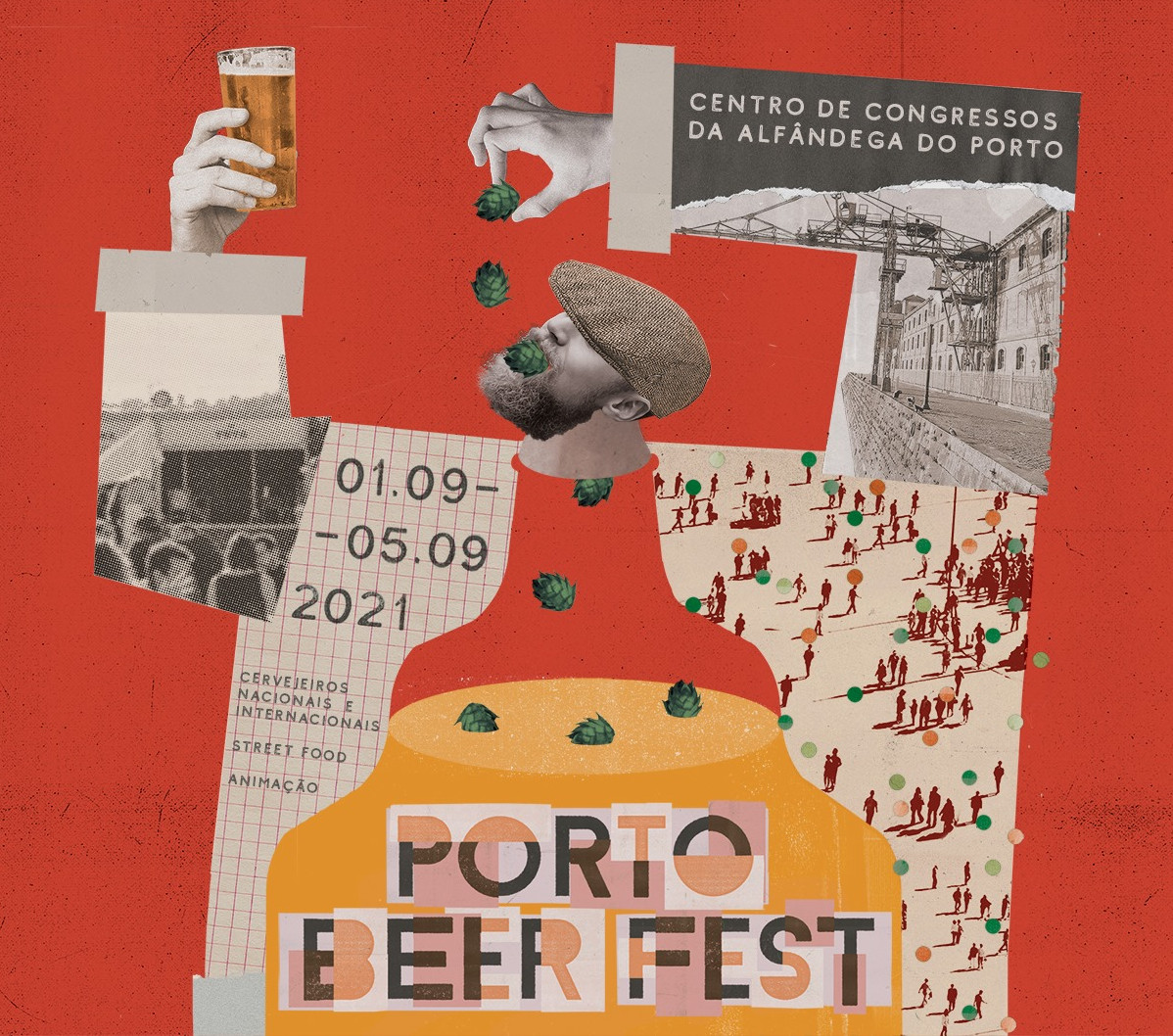
There was also an edition with the name ArtBeerFest held in Vigo. Why didn't you want to give it continuity?
Octavio: We just used the ArtBeerFest name once outside of Caminha, in Vigo, and it was a tremendous mistake.
Why do you think it was a mistake?
Octavio: First because of our inexperience. It didn't work out, but it was a learning experience for us. From then on, we never used again the ArtBeerFest name in any other place than Caminha—in Porto we called it PortBeerFest, and in Faro AlamedaBeerFest. Each of them have a different character.
What makes PortBeerFest or AlamedaBeerFest different?
Octavio: At PortBeerFest you feel like you're in a city. The crowd is much younger and more daring. The venue is emblematic—Largo de Alfândega. And it is five times more valuable than ArtBeerFest in Caminha, both in terms of profitability and costs. In Porto we have no help from anyone, while in Caminha we have a lot of help from the city council.
As for the AlamedaBeerFest in Faro, there are a lot of foreigners, a lot of tourism. Right now there are as much as 18 beer producers in the Algarve.
It's very important to bring people who know, who have knowledge. “Give and take.”
You also carried out a series of promotional actions in Brazil
Octavio: In Brazil and also in other countries. We realised that despite the local market, Portuguese craft beer was progressing in small steps, so we thought we had to take it to other countries. We did this through collaborative beers and the participation of Portuguese beers in international festivals. We had funding from Brussels to take Portuguese beers to Brazil and to other festivals in Europe and also to Taiwan. That was a shock, a shock therapy for many breweries. For example Letra, they thought above all about their village, their city, their region, their territory. That moment was key to change the mentality and helped them to think differently. They realised that it is possible to reach the level of the beers they were making in the USA At the same time, we were meeting people who we would then bring to Portugal. It's very important to bring people who know, who have knowledge. “Give and take.”
One of those great international brewers with a special relationship with ArtBeerFest is Mikkeller, who was already at ArtBeerFest 2015. How did you convince him to come?
Octavio: Mikkel is a very reserved person, he can even seem distant. One day we told him that we were on a trip to Copenhagen and that we wanted to talk to him. That we were going there just for that purpose. The idea we conveyed to him is that we wanted him to come to Caminha, but not for him to be able to say that he was there and that he was the king. But to come and see what state Portuguese beer was in, to give a boost to the scene, and also in terms of branding, to boost us to another level. Especially in terms of communication. He made a post where he was running through the bush with his arms wide open and Caminha in the background in which he wrote “behind me is Artbeerfest Caminha”, and that had an exponential impact on our social media.
Mikkel was the catalyst for a lot of things for us, and at the same time he was the catalyst for our friendship.
Mikkel was the catalyst for a lot of things for us, and at the same time he was the catalyst for our friendship. They were very well treated here, and we were also very well treated when we went to Copenhagen. There is a very great relationship and we talk to each other on a daily basis.
Why do you think this special connection with Caminha came about?
Octavio: Mikkel is not a typical Dane. He is in his usual manner, but then when you get to know him he has a great closeness. Mikkel was the first person this year to tell me “ArtBeerFest must happen this year, because it didn't happen last year and no event can last two years without happening”. “You have to do anything, even if it's a house party and call it ArtBeerFest. If you need us, we'll come. If you need beer, we'll give it to you for free”—they sent us 3 pallets of beer. And that can only be done by a person who feels comfortable. With him we travelled all over the world, to do festivals in Boston, in Tokyo...
Caminha has always had a great representation of Nordic breweries—To Øl, Lervig, Brewski. Was it was thanks to Mikkeller?
Octavio: Obviously, Mikkel opened many doors for us, but he doesn't force anyone to come. We also gained a lot of prominence along the way. We achieved a notoriety that we never expected, but we worked hard to achieve it.
One of the most important beer people in Europe said there are 20 important people in the European beer world, and he included us among them.
The other day one of the most important beer people in Europe—from the organisation of the London Craft Beer Festival—said there are 20 important people in the European beer world, and he included us among them. With that list they wanted to recognise people who make beer more than a commercial product, that it's friendship, collaboration, loyalty. We always do beer things with beer people. Obviously there's the business, that there wasn't this year. But we were always very kind to all the people involved.
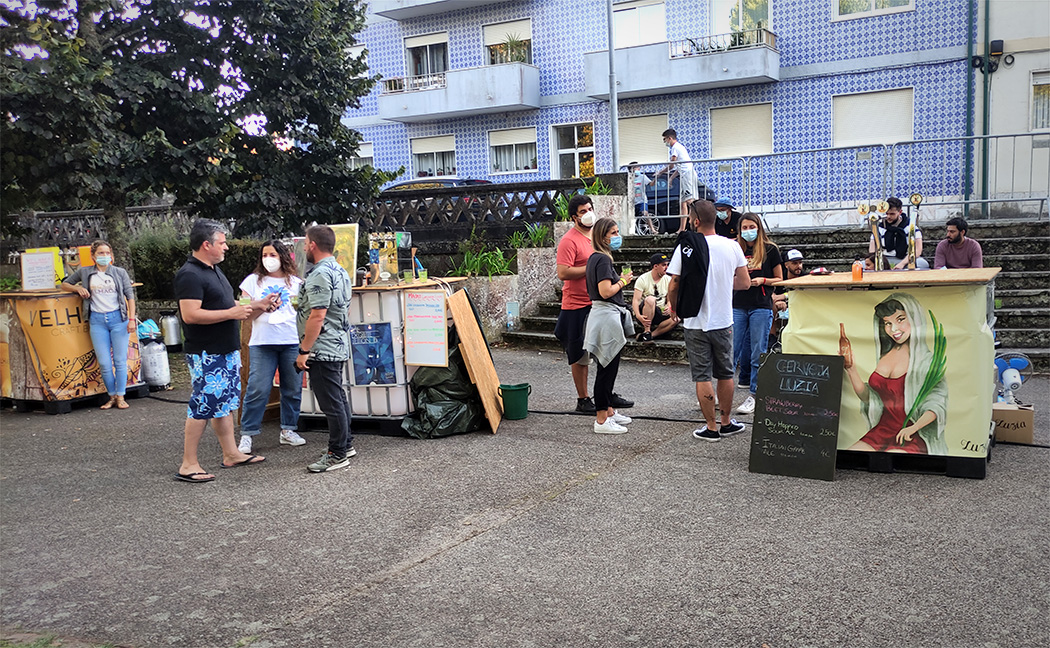
It was a very important feeling for us, to see that people are starting to love something called ArtBeerFest.
The last edition of 2019 incorporated a new format—the guest nation—, while this edition, of 2021, obviously under special conditions, the big novelty was the e-artbeerfest. Are they going to be continued in future editions? What other plans do you have for the future?
Octavio: We are not very much about creating models. We are more spontaneous—about creating opportunities. There is a section called Beer Without Borders—which is a bit... against Brexit. So we wanted to have a political moment and create a Scottish Corner, to give strength to people all over the world who want to have beer—and don't want to have borders. Next year we're going to have the French Kiss—we're going to invite the French, who are one of the great powers that are creating good beers at the moment. We already had Brazil as a guest country in 2015. But we don't have a model that we're going to follow every year. If we feel like doing it, we do it, if we don't, we don't.
As for the e-artbeerfest, the day we got caught by the pandemic and we thought "what are we going to do, if our business is to bring people together?". So we launched a box, which last year was a tremendous success, and this year a brutal success with two boxes. It was a way of keeping the brand alive. We had the international pack, where foreign brewers reduced their margins a lot because of customs costs, and the national pack. The national pack sold out within two weeks, which was also a very positive surprise. It was a very important feeling for us, to see that people are starting to love something called ArtBeerFest.
